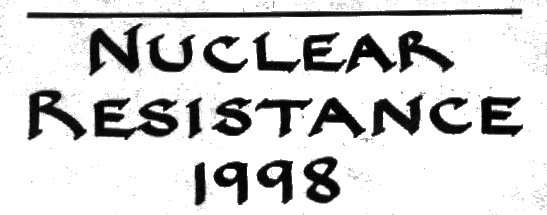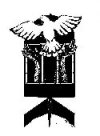

# of arrests # of sites
# of actions
1998
655
25 48
1997
910
32 59
1996
590
25 48
1995
990
34 77
1994
910
41 73
1993
1,000
37 80
1992
2,480
40 90
1991
2,550
32 65
1990
3,000
41 85
1989
5,530
75 150
1988
4,470
65 160
1987
5,300
70 180
1986
3,200
75 165
1985
3,300
120 170
1984
3,010
85 160
1983
5,300
60 140
[Editors’ note: For accurate comparison, the statistics quoted
here include only those arrests and actions that included a clear anti-nuclear
component.]
We encourage the use and republication
of this information. O.K. to edit for space. We ask only that credit
be given to the Nuclear Resister.
1998 brought a decline in the number of anti-nuclear arrests in the United States from the previous year. Over 650 anti-nuclear arrests occurred during the year in the U.S., at 25 different sites, during at least 48 different actions.
The 9th annual demonstration at Ft. Benning, Georgia to close the School
of the Americas (S.O.A.) drew a record 7,000 protesters to the front gate
of the base on November 21 and 22. In the largest civil disobedience
action in the U.S. since Vietnam, 2,319 people formed a funeral procession
remembering victims of S.O.A. graduates, and crossed the line onto the
base. Overwhelmed, the army opted to bus the protesters to a nearby
park
and release them.
In the shadow of regular threats to bomb Iraq, there were over 300 anti-war and anti-militarism arrests in the United States and Canada in 1998, taking place at more than 35 different actions at no less than 25 different sites.
Responding to the near-constant U.S. and U.K. threats to bomb Iraq throughout
the year, allegedly over Iraq’s failure to comply with U.N. inspections
for weapons of mass destruction, hundreds of citizens around
the globe took the initiative to inspect for weapons of mass destruction
in at least 6 different countries. These citizen’s weapons inspection
actions mushroomed in 1998. Citizen Inspectors entered suspected
weapons-related
facilities, demanding free and unfettered access to conduct their inspections,
based on an understanding of their responsibility under international law.
Although arrests did not occur as a result of all inspection attempts,
participants were arrested at Bath Iron Works, Davis-Monthan Air Force
Base, Livermore Labs, Project ELF, Raytheon, STRATCOM, the Pentagon, Groton
Navy Subbase and Lockheed Martin in the U.S., as well
as in the Netherlands, Belgium, Scotland, England, and Israel.
There were several Plowshares direct disarmament actions during 1998. Groups of activists hammered on a B-52 bomber in Maryland, a Minuteman III missile silo in Colorado, uranium mining equipment in Australia and Trident submarine support equipment in England. All of these Plowshares activists spent time in prison during the year. The Minuteman III Plowshares, charged with sabotage and conspiracy in addition to destruction of property, were given the lengthiest prison sentences – 30 months for Sachio Ko-Yin and 41 months for Daniel Sicken.
